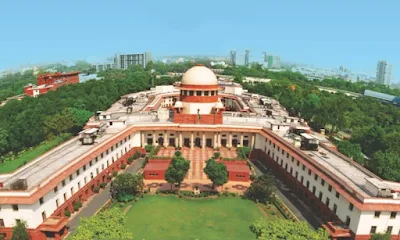In a significant observation during an ongoing alimony case, the Supreme Court of India underscored the importance of self-reliance for educated women, suggesting that those with substantial qualifications should not depend on interim maintenance from their spouses.
Chief Justice of India, D.Y. Chandrachud, addressing the petitioner, remarked, “You are highly educated. You should not be seeking alimony, but rather earning a livelihood on your own.” The woman in question holds an MBA and has professional experience in the IT sector. Pointing to the demand for such professionals in cities like Bengaluru and Hyderabad, the Chief Justice questioned her decision to remain unemployed: “Why don’t you choose to work as well?”
The Chief Justice further noted that the marriage had lasted only 18 months and questioned the justification behind her expectations, stating, “And now you want a BMW?”
In response, the petitioner claimed her husband was “very wealthy” and had filed for annulment on the grounds of alleged mental illness, asserting she suffered from schizophrenia. The court, however, stressed that when an individual is highly qualified and chooses not to work out of personal preference, such choices must be considered in maintenance deliberations. As quoted by Bar & Bench, the CJI stated, “Either you get a flat free of encumbrances, or nothing.”
This stance aligns with a similar precedent set earlier this year. In March, the Delhi High Court ruled that interim maintenance should not serve as a fallback for those choosing to remain idle despite being qualified to earn. Justice Chandra Dhari Singh, while interpreting Section 125 of the Code of Criminal Procedure—which pertains to maintenance for wives, children, and parents—affirmed that the law seeks to promote equality, not dependency.
Delivering judgment in a comparable case, the High Court held: “A well-educated wife, with experience in a suitable gainful job, ought not to remain idle solely to gain maintenance from her husband. Therefore, interim maintenance is being discouraged in the case, as the court sees clear potential in the petitioner to support herself.”
These judicial observations highlight a growing emphasis on empowering individuals—particularly women with the qualifications and ability to be self-sufficient—to actively pursue independent livelihoods rather than relying on spousal support by default.




.png)
The opinions posted here do not belong to 🔰www.indiansdaily.com. The author is solely responsible for the opinions.
As per the IT policy of the Central Government, insults against an individual, community, religion or country, defamatory and inflammatory remarks, obscene and vulgar language are punishable offenses. Legal action will be taken for such expressions of opinion.